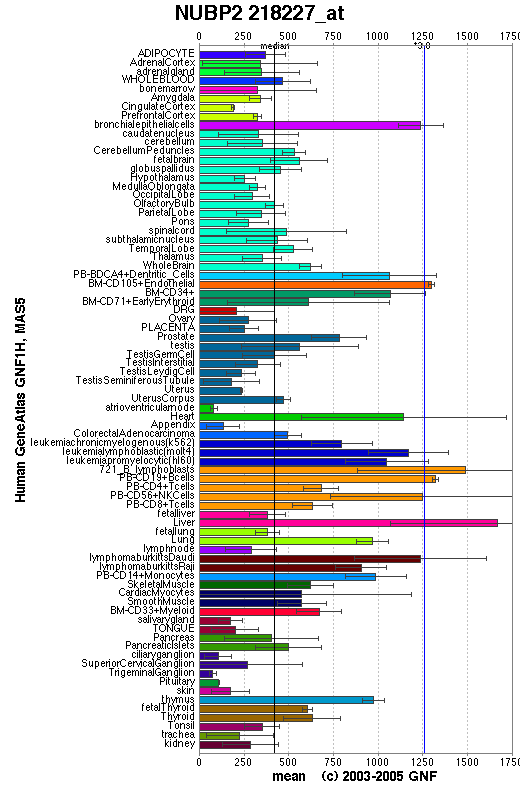Function: Siowwei: Difference between revisions
From MDWiki
Jump to navigationJump to search
No edit summary |
No edit summary |
||
| Line 10: | Line 10: | ||
{| class="prettytable" | {| class="prettytable" | ||
| Protein names | | Protein names | ||
| '''Nucleotide-binding protein 2'''''Also known as:'' NBP 2 | | '''Nucleotide-binding protein 2''''' Also known as:'' NBP 2 | ||
|- | |- | ||
Revision as of 23:31, 9 June 2008
Results on Function Analysis
Table 2.1 Complete annotation of NUBP2 retrieved from UnitProtKB/Swiss-Prot
Names and origin
| Protein names | Nucleotide-binding protein 2 Also known as: NBP 2 | ||
| Gene names |
| ||
| Organism | Homo sapiens (Human) |
General annotation (Comments)
| Function | May contribute to formation of bipolar spindles (By similarity). |
| Subunit structure | Binds NUBP1 and KIFC1 (By similarity). |
| Subcellular location | Nucleus (By similarity). Note=Associated with nucleus during interphase and nucleocytoplasm surrounding mitotic spindles during early mitosis. Enriched around centrosomes during late mitosis (By similarity). |
| Tissue specificity | Widely expressed with highest expression in skeletal muscle. |
| Developmental stage | Expressed in fetal brain, lung, liver and kidney. |
| Sequence similarities | Belongs to the Mrp/NBP35 ATP-binding proteins family. |
Ontologies
| Keywords | |
| Cellular component | Nucleus |
| Ligand | ATP-bindingNucleotide-binding |
| Gene Ontology (GO) | |
| Molecular function | Nucleotide binding
Traceable author statement. Source: ProtInc |
Sequence annotation (Features)
| Feature key | Position(s) | Length | Description | Graphical view | ||||
| Molecule processing | ||||||||
| Chain | 271
|
Nucleotide-binding protein 2 |
| |||||
| Regions | ||||||||
| Nucleotide binding | 8
|
ATP Potential |
| |||||
Table 2.2 Aligned sequence of 2ph1 protein
Table 2.3 The diagram and table below show the 3 sequence motifs found in the sequence
Table 2.4 The diagram and table below show the 1 sequence of superfamily found in the sequence
Figure 1. Protein-protein interactions search using 2ph1 sequence
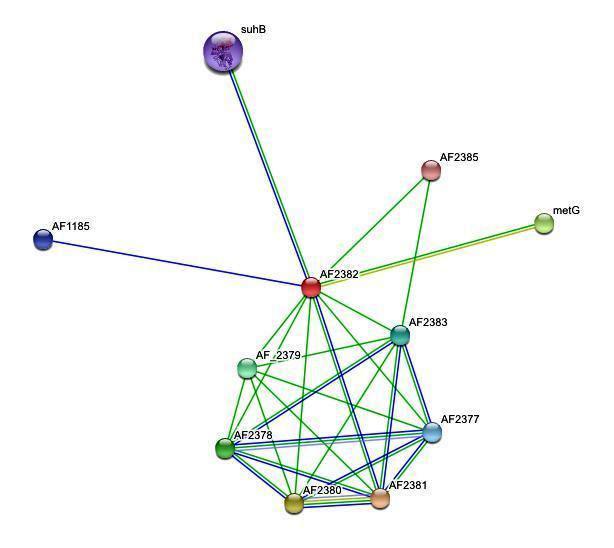
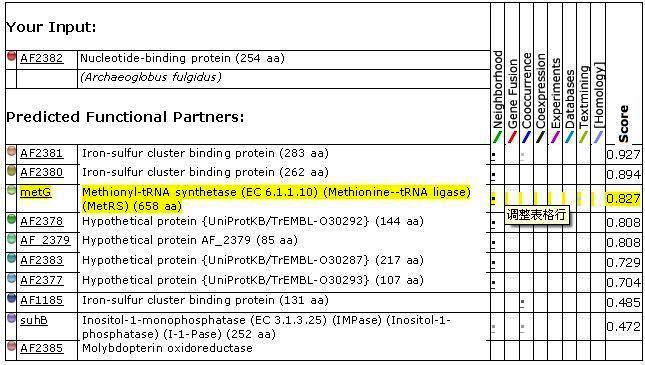
Figure 2. Protein-protein interactions search using NUBP2 sequence
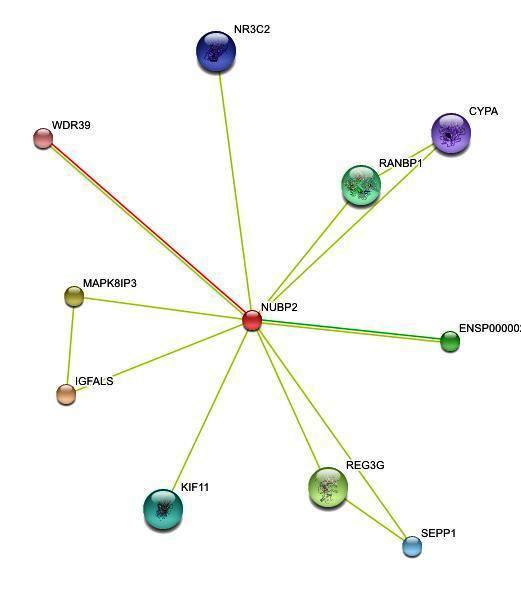
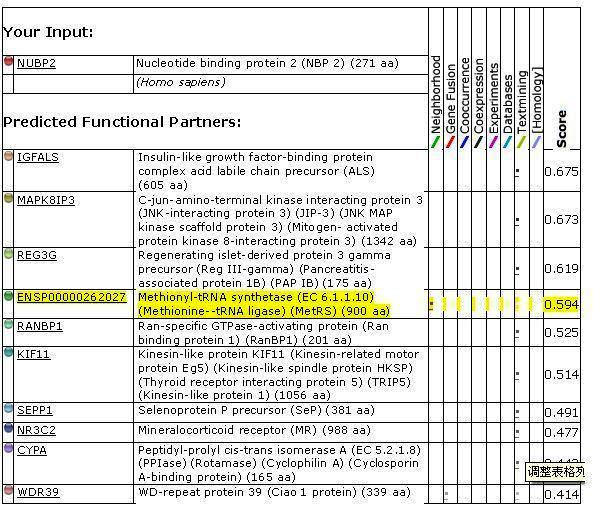
Figure 3. NUBP2 expressions in human and mouse tissues





